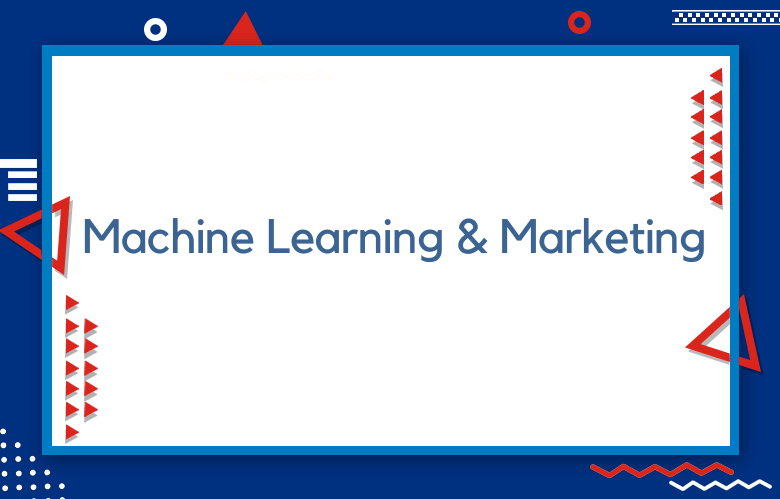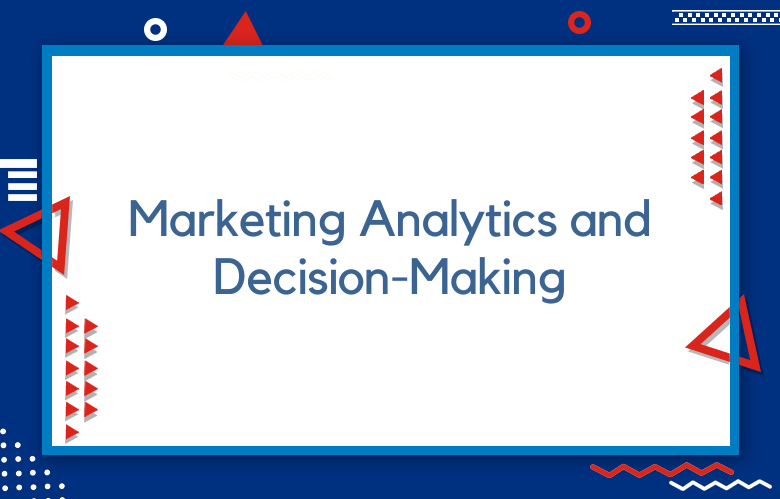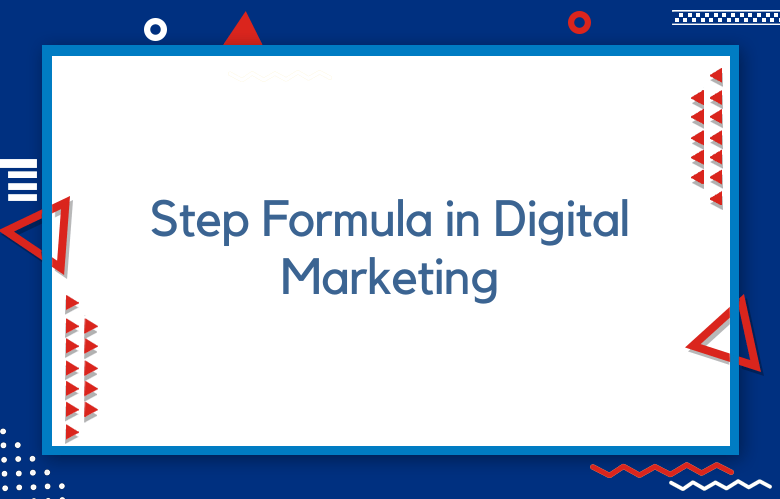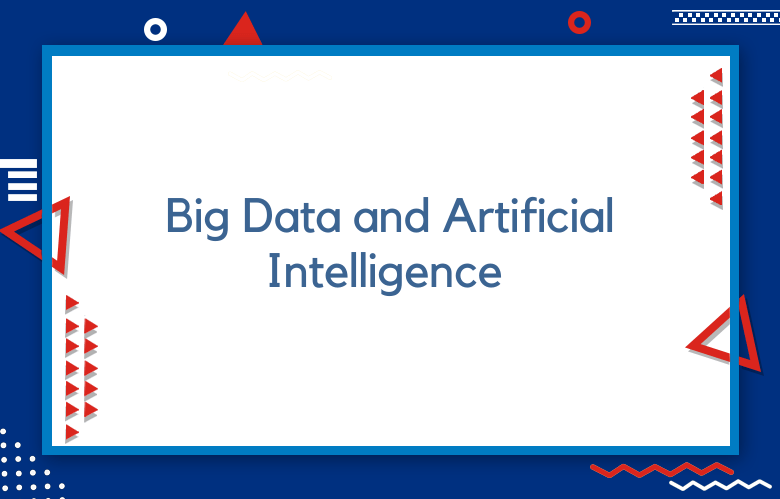How Machine Learning Transformed Marketing

Machine learning has revolutionized the marketing industry. Its ability to quickly process large amounts of data and generate insights has transformed marketers’ decisions about their campaigns.
Let’s look at how machine learning transforms marketing and what it means for marketers today.
Marketing has changed immensely in the last decade, with one of the most significant changes being driven by machine learning.
We now have access to data that gives us unprecedented insight into our target audiences, allowing us to tailor campaigns more efficiently and effectively than ever before.
We will explore how machine learning has impacted marketing strategies worldwide and provide an overview of using these new technologies for your business’ success.
The rise of digital technology has transformed the way businesses market their products and services.
From sharing content on social media to automated AI chatbots, marketing efforts have evolved significantly in recent years.
However, one revolutionary development that has had a dramatic effect on modern marketing is machine learning (ML).
Now more than ever, companies are leveraging ML to gain valuable insights and make informed decisions about how best to attract, engage, and convert customers.
We’ll explore how ML-driven tools can be used for sophisticated lead scoring, audience segmentation, and personalized customer engagement, explaining why traditional approaches are obsolete.
How Machine Learning Revolutionized Marketing
Accurate Targeting and Personalization
Machine learning allows marketers to target their campaigns more accurately. By leveraging large datasets, machine learning algorithms can identify patterns in user behavior, allowing them to understand better who their target audience is and what message will resonate with them.
This allows marketers to create more effective campaigns tailored to their target audience’s needs.
Better Predictive Insights
Machine learning also gives marketers predictive insights into customer behaviors and trends.
By analyzing large datasets of customer data, machine learning algorithms can identify which campaigns are likely to be successful and which are likely to fail.
This helps marketers decide which strategies to focus on, resulting in higher ROI from their campaigns.
Improved Campaign Optimization
Finally, machine learning can improve campaign optimization by automatically testing different campaign variations to find the most effective version.
This automated testing process can help marketers optimize their campaigns for maximum performance without manually testing every single campaign variation.
This saves time and money while ensuring that the best results are achieved with each campaign launch.
What are some examples of how Machine Learning has transformed Marketing?
One of the most prominent examples of how machine learning has revolutionized marketing is segmentation.
By leveraging the power of forecasting analytics and machine learning algorithms, marketers can efficiently segment their customer base into smaller, more detailed segments.
This allows for more tailored and personalized messaging, meaning each message sent to a particular customer segment is more likely to convert.
Machine learning can also improve user experience by providing personalized recommendations and optimizing website content based on customers’ browsing behavior and past purchases.
For example, marketers can use machine learning models to predict which products customers might want based on past purchases or visits to the site. It makes it easy for customers to find what they’re looking for quickly, resulting in a better overall experience with the brand.
In addition, machine learning can automate processes such as email marketing campaigns.
Marketers can use algorithms that recognize patterns within customer data sets and then generate automated emails targeting individual customers with offers or relevant information.
This helps increase conversion rates and saves time from manually sending out messages individually.
Many companies also use machine learning to analyze customer sentiment in social media posts.
Using natural language processing (NLP) technologies and sentiment analysis algorithms, brands can detect when customers are talking about them positively or negatively and respond appropriately to build better relationships with their audience.
Machine learning can help marketers better understand who their demographic should target by running tests on different audiences and analyzing the results to determine which group is most likely to convert into paying customers.
How has Machine Learning impacted the field of marketing?
Machine learning has had a tremendous impact on marketing in recent years.
This technology has enabled marketers to gain more insight into their target customers by collecting, analyzing, and automatically interpreting large amounts of data.
Marketers can better understand customer behavior, preferences, and interests to craft more effective marketing campaigns.
Machine learning also helps marketers identify trends across industries and markets, allowing them to tailor messages better and offers to their intended demographic.
In addition, machine learning can help automate specific marketing tasks such as market segmentation and ad targeting. This automation makes it easier for marketers to reach the right people with the correct message at the appropriate time, resulting in higher conversion rates.
Machine learning algorithms can also predict customer churn, which helps marketers understand when customers are likely to leave so they can take steps to prevent it.
Furthermore, machine learning gives marketers a better understanding of their competitors’ strategies so they can adjust their strategies accordingly.
Machine learning is helping marketers increase revenues through improved targeting and personalization techniques and increased efficiency in data analysis and optimization processes.
What are the benefits of Machine Learning in Marketing?
One of the primary benefits of using machine learning in marketing is its ability to analyze large amounts of data quickly.
Machine learning algorithms can scan and analyze vast amounts of customer data quickly and accurately, allowing marketers to gain insights into their customers and tailor their campaigns accordingly.
For example, a marketer can use machine learning algorithms to find patterns in customer behavior, such as what days or times customers tend to purchase products or how often they engage with marketing messages.
By leveraging this information, marketers can ensure their campaigns are targeted and effective.
Using machine learning in marketing provides more accuracy than traditional methods when it comes to predicting the effectiveness of a specific campaign or ad.
Machine learning models can factor in more data points than any human analyst could manually consider. It allows for more accurate predictions regarding the impact of particular campaigns or ads on potential customers.
With machine learning models, marketers can experiment with different strategies at scale without committing too much time and resources upfront as they would have with traditional methods.
By utilizing machine learning models that leverage automated decision-making processes, marketers can save time, which can be reallocated to more strategic initiatives, such as developing new products or services.
How has Machine Learning changed the way companies approach Marketing?
Machine learning has revolutionized the way companies approach marketing.
In a world of fierce competition, where consumer needs constantly change, machine learning provides marketers with invaluable insights into consumer behavior and trends that can help inform their strategies.
With machine learning, marketers can build predictive models and identify target audiences more cost-effectively and accurately than ever.
Machine learning allows marketers to tailor campaigns more effectively by understanding real-time customer preferences and buying patterns. It helps businesses target their campaigns to the right customers and increase conversion rates.
For example, using natural language processing, marketers can create personalized content for each customer based on their interaction with a company’s website or social media accounts.
Machine learning can also analyze customer data for trends or correlations between specific characteristics that could inform future marketing strategies. By leveraging these insights, companies can develop more effective messaging and tailor campaigns to specific audiences at scale.
In addition, machine learning enables businesses to continually optimize their campaigns based on performance metrics such as click-through rate (CTR) and average order value (AOV).
By monitoring campaign performance over time, machine learning systems can detect patterns in user behavior that indicate whether an ad has been successful or unsuccessful, allowing adjustments to be made accordingly.
Automated systems powered by AI algorithms allow businesses to quickly test different approaches with minimal resources while gathering valuable data on user engagement.
Overall, this helps companies improve their marketing efforts and reduces operational costs associated with manual optimization processes, enabling them to stay competitive.
What are the most significant ways Machine Learning has transformed the Marketing industry?
One of the most significant ways machine learning has transformed the marketing industry is through its ability to analyze vast volumes of data quickly and accurately.
Predictive analytics uses machine learning algorithms to detect patterns in customer behavior and identify opportunities for targeted marketing campaigns.
It allows companies to tailor their campaigns more precisely to specific audiences and ensure their messages reach them at optimal times.
Machine learning can personalize content for each customer, increasing engagement and loyalty.
Another significant impact of machine learning on the marketing industry is its ability to automate processes traditionally done manually.
Automated segmentation, for example, enables marketers to create distinct user groups based on criteria such as age, location, gender, or interests. It makes it easier for marketers to target relevant advertising materials more accurately than ever.
Automated sentiment analysis uses natural language processing (NLP) technologies to gauge real-time consumer opinion about products or services. It provides valuable insights into customer expectations and helps marketers adjust their strategies accordingly.
AI-enabled chatbots have become increasingly popular, offering customers 24/7 support while reducing costs associated with traditional customer service operations.
How has Machine Learning revolutionized Marketing Analytics?
The emergence of machine learning has revolutionized marketing analytics, as it has revolutionized other industries.
Machine learning has enabled marketers to better understand consumers, their behaviors, and preferences by leveraging large amounts of data from multiple sources and using algorithms to uncover patterns and insights.
This enhanced understanding allows marketers to create more personalized experiences that are better tailored to individual preferences.
In addition to this personalization, machine learning has made it easier for marketers to focus on more strategic tasks, such as optimizing campaigns and improving performance.
Machine learning algorithms can analyze customer data in real-time and quickly identify high-value customers or trends that can be used to optimize campaigns.
This helps marketers make more intelligent decisions faster than ever by more accurately targeting specific demographics or segments with the right message at the right time.
Machine learning enables marketers to predict how likely prospects are to respond positively or negatively to particular offers or messaging strategies.
This predictive analysis allows them to develop tailored campaigns to maximize returns on investment (ROI) and optimize customer lifetime value (CLV).
Overall, machine learning technology has drastically transformed the way marketing analytics is performed today.
These advanced capabilities allow marketers to automate mundane tasks like targeting ads or segmenting customers while providing powerful insights into customer behavior and preferences that help them make better decisions faster than ever before.
As a result, marketers can create hyper-personalized customer experiences and maximize ROI and CLV through targeted campaigns that deliver a greater return on investment than traditional approaches would have produced.
What role does Machine Learning play in modern Marketing strategies?
The role of machine learning in modern marketing strategies is increasing, and it has become a cornerstone of many businesses’ success.
Machine learning technologies are helping marketers gain insights into their customers’ behavior and preferences, enabling them to serve highly targeted product recommendations, personalized emails, and more.
This technology allows marketers to identify trends and provide more accurate forecasts for campaigns and other business decisions.
Machine learning algorithms are used to automate customer segmentation, target market identification, ad placement optimization, lead scoring and acquisition, content recommendation systems, and more.
This helps marketers save time on manual tasks while streamlining the customer journey.
By giving marketers access to powerful data analysis tools like natural language processing (NLP) and computer vision (CV), they can gain better insight into their consumers’ motivations and behaviors.
They can then create relevant content that resonates with their target audience more effectively.
AI-driven chatbot systems allow marketers to interact with customers on social media platforms or websites in real time.
AI-driven bots help initiate conversations with prospects, leading to higher engagement rates than traditional methods like email marketing or static website pages.
Overall, machine learning is changing how marketers approach audience segmentation and targeting by providing them with unprecedented levels of automation while still allowing them to customize experiences for each customer based on their interactions or feedback.
It also helps save time in the creative process by using predictive analytics models that help curate content faster than ever before.
Marketers can quickly detect emerging trends through machine data analysis techniques like sentiment analysis, which enable them to respond quickly to remain competitive in today’s rapidly evolving digital space.
How has Machine Learning enabled more targeted and personalized Marketing Campaigns?
The development of machine learning has enabled the creation of more targeted and personalized marketing campaigns.
Using it, companies can create campaigns that provide a personalized experience to their customers, tailored specifically to their individual needs.
Machine learning algorithms can identify patterns and trends in user behavior, allowing marketers to target specific audiences more accurately with their campaigns.
Moreover, machine learning can also automate specific marketing campaign creation and management aspects.
Companies can now use AI-driven tools to quickly analyze customer data and generate unique insights into how to tailor their campaigns for maximum effectiveness.
By utilizing these tools, businesses can optimize their marketing strategies for better results with fewer resources.
AI-powered automated marketing tools can also help different test versions of a campaign before it is launched so that the best approach can be adopted for maximum success.
In addition, machine learning has enabled companies to use personalization techniques more effectively when creating marketing campaigns.
With its help, marketers can customize messages for different groups of customers based on their past behaviors or interests.
For example, using AI-driven analytics tools allows companies to identify which features or offers would be most attractive to particular segments of customers so that they can tailor their messages accordingly.
It helps refine their campaigns and makes them more relevant and valuable for the customers.
Companies use machine learning to create targeted and personalized marketing campaigns and track customer activity after launching these initiatives.
With the help of AI-powered technologies such as natural language processing (NLP) and computer vision (CV), businesses can monitor user interactions with their products or services to gain a deeper understanding of the effectiveness of their campaigns.
This information allows them to make adjustments to ensure consistent performance across all customer touchpoints throughout a campaign’s lifecycle.
How has Machine Learning made it easier for companies to track and measure Marketing effectiveness?
Machine learning has revolutionized how companies track and measure marketing effectiveness.
This powerful technology makes it easier for business owners to gain valuable insights that can help them optimize their strategies and make more informed decisions.
The primary benefit of machine learning is its ability to automate processes that used to be tedious and time-consuming.
By leveraging algorithms and advanced data analytics, businesses can collect a wealth of data points in real time, allowing them to identify trends and patterns in customer behavior quickly and accurately.
Because machine learning systems can learn from past experiences and adapt as conditions change, they are even more reliable when tracking marketing effectiveness.
Machine learning also helps companies quantify the impact of different tactics on their bottom line.
For example, by using AI-powered optimization tools, businesses can easily track the ROI of various campaigns across channels and adjust their budgets accordingly.
This process allows them to ensure they’re getting the most out of every dollar they spend on marketing efforts.
With machine learning, they can uncover which tactics work best for specific audiences or target segments, giving them valuable insights into how to structure their campaigns in the future.
Machine learning makes it easy for businesses to evaluate their success over time thanks to its ability to constantly process data about customer engagement levels, such as click-through or conversion rates.
This information is invaluable when marketers review the performance of specific initiatives and decide which ones to continue or discontinue.
In other words, machine learning has drastically improved companies’ ability to measure what’s working now and what has been effective over time so they can make informed decisions about where resources should be allocated in the future.
What are the prospects for Machine Learning in Marketing?
The prospects for machine learning in marketing are fascinating.
With the array of data available, machine learning can be used to automate customer segmentation and create personalized customer experiences.
This technology can help marketers identify new opportunities and trends that go unnoticed.
Machine learning-based processes can produce real-time insights into customer behaviors, which helps marketers optimize their campaigns with better targeting and improved customer experience.
Furthermore, machine learning can help scale customer acquisition by automatically optimizing campaigns based on performance metrics or automated content creation.
It can also detect hidden patterns in customer data to uncover opportunities that traditional methods cannot.
For example, AI-powered recommender systems can help customers discover products they may be interested in based on previous interactions with a brand.
Machine Learning algorithms can detect anomalies in customer behavior, which could indicate potential fraud or account takeover activities.
Overall, Machine Learning has vast potential in marketing and is transforming how businesses engage with customers.
Brands now have access to unprecedented intelligence, allowing them to deliver more personalized experiences and increase efficiency by automating repetitive tasks such as data analysis or A/B testing.
Shortly, AI-driven technologies will continue revolutionizing how companies understand their customers and interact with customers in their buying journey.
Machine Learning Marketing Consulting
Machine Learning Marketing Consulting is a specialized marketing consulting that utilizes advanced technologies like Artificial Intelligence, Machine Learning, and Predictive Analytics to help organizations better understand their customers and create effective marketing strategies.
By leveraging machine learning algorithms, companies can gain deeper insights into customer behavior and preferences, allowing them to better target their marketing efforts for maximum impact.
Marketers can use advanced predictive algorithms to develop more effective campaigns, track real-time performance, improve ROI measurements, and increase customer lifetime value.
Machine Learning in marketing enables organizations to automate many manual data analyses and decision-making processes.
This automation saves time and money while freeing resources for other critical strategic tasks.
Also, since Machine Learning systems can continually learn from past customer interactions and feedback, they become more accurate over time.
It allows marketers to quickly adjust their strategies based on the latest trends or changes in the market environment.
As a result, organizations can stay ahead of the competition and capitalize on opportunities more effectively than ever before.
Conclusion
In conclusion, machine learning has revolutionized how marketers approach their campaigns by providing accurate targeting capabilities, predictive insights into customer behaviors, and improved campaign optimization techniques.
In today’s digital world, leveraging machine learning-based technologies is essential for marketers looking to get ahead of the competition and maximize ROI from their campaigns.
As technology continues to evolve, so does the potential for using machine learning in marketing—endless possibilities!



